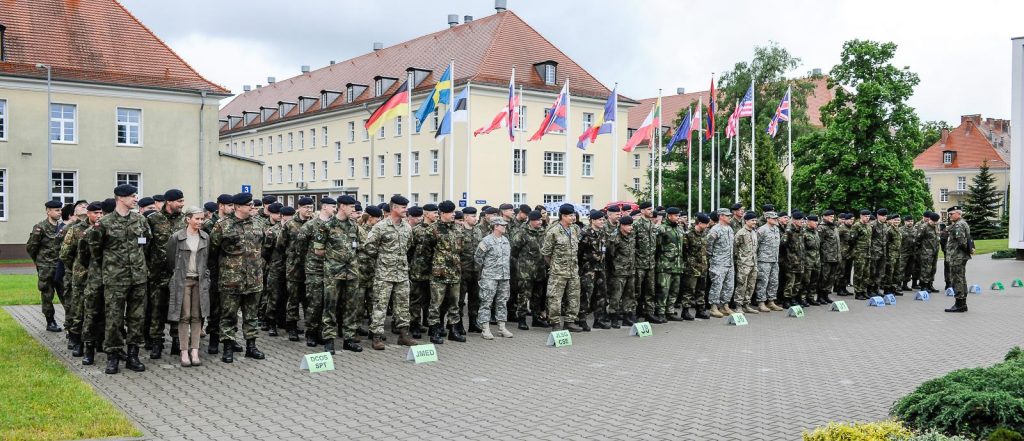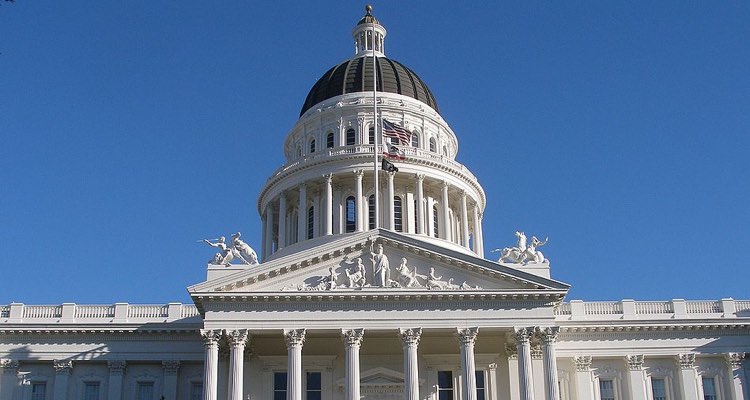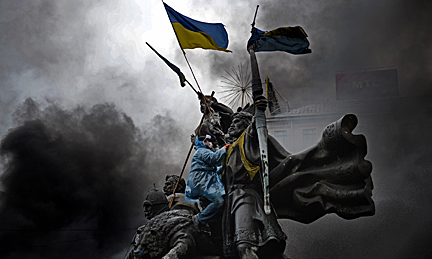Pentecost Sunday Full Gospel
I keep on repeating this through the years, but the need for the constant repetition comes from the simple fact that among new doctrinal teachings and Hillsong style of worship the True Message of Pentecost remains long forgotten
- Salvation – That a man must be saved while the hour of grace is still upon us has been that teaching of every protestant evangelical since the Reformation. Why people attend church all their lives without getting saved is beyond me. But I do know that the commitment of the CHURCH to REVIVAL brings people to SALVATION.
- Sanctification – The Wesleyan teaching of sanctification resolves that the sanctification of the believer is definite. This means that though it may progress and evolve through time, as the believer gets closer to God in his/her daily walk, sanctification must become ENTIRE i.e. allowing NO sin to abide in the believer’s body, soul or spirit. Without ENTIRE sanctification resulting in holiness, no one will ever see God (Heb. 12:14).
- Holy Ghost Baptism – The doctrine of the Baptism with the Holy Ghost means that when baptized we speak in one tongue with God because we are ONE with His Spirit. Not just in us or upon us, but that we are IN the Spirit as John was on the day of Revelation.
- Healing in the Atonement of Christ belongs to every believer. This means you, your family and your church members. The healing provided in the Atonement is for ALL believers – no exception. It is also for ALL sickness, disease, viruses, infections, tumors and cancers. But that it belongs to does not yet mean that it has been received by the believer. For this reason, God does not stop healing neither in this age nor through eternity, as the leaves of the Tree of Life in the New Jerusalem are still and forever for the healing (Rev. 22:2)
- The Second Coming of Christ for Pentecostals is not simply pre-millennial, but also pre-Tribulation. There have been MANY teachings on the End Times until today. Post-millennials claim we live in the Millennium even now anticipating the return of the Lord; a-millennials that there will be no Millennium at all. Post-tribulationists expect his return at the end of the Tribulation, mid-post-tribulationists in the middle. But in Pentecost, we expect Christ to return before the Tribulation that we may be saved from the hour of trial (Rev. 3:10) and before the Millennium so we may reign with Him 1,000 years. Any other message is no message of hope for the Church of the Living God.
Speaking in Tongues in America Prior to the Azusa Street Revival of 1906
April, 1906 – The Azusa street revival swept the globe starting with California
January 1, 1901– The initial phenomenon of speaking in tongues occurred at Parham’s school in Topeka, Kansas
January 6, 1900 – Frank Sanford’s Shiloh school reported that “The gift of tongues has descended”
1896 – Over 100 people baptized in the Shaerer schoolhouse revival conducted by the Christian Union in the North Carolina mountains
1887 – People falling in trances and speaking in tongues were reported at Maria Etter’s revival meetings in Indiana
1874 – Speaking in tongues occurred during healing meetings reported in New York
1873 – William H. Doughty and the Gift People of Rhode Island spoke in tongues
1854 – V. P. Simmons and Robert Boyd reported tongue speaking during Moody’s meetings
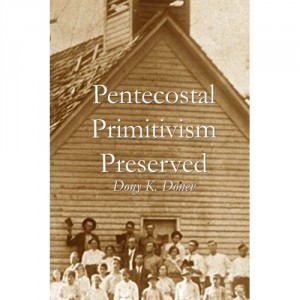
FURTHER READING:
Church of God (Cleveland, TN)
- Alive, alive! (A personal testimony)
- Church of God Primitivism
- Bulgarian Church of God
- J.W. Buckalew
- Why revival came? by Dr. Charles Conn
Azusa Street Revival of 1906
- Lucy F. Farrow: The Forgotten Apostle of Azusa
- The FORGOTTEN ROOTS OF THE AZUSA STREET REVIVAL
- Azusa Street’s Apostolic Faith Renewed
- Azusa Street Sermons
- Pentecostal Primitivism Preserved
Prior to Azusa Street Revival of 1906
- First person to speak in tongues in the Assemblies of God was William Jethro Walthall of the Holiness Baptist Churches of Southwestern Arkansas
- The Work of the Spirit in Rhode Island (1874-75)
- Speaking in Tongues in America Prior to the Azusa Street Revival
- WAR ON THE SAINTS: Revival Dawn and the Baptism of the Spirit
- How Jezebel Killed One of the Greatest Revivals Ever
The Unforgotten: Historical and Theological Roots of Pentecostalism in Bulgaria
SEE MORE at Amazon.com by clicking this link
BULGARIA with a NEW Caretaker Cabinet until July
World Wires on Bulgaria: Caretaker Cabinet Will Have to Tackle Pandemic, Ensure Fair Elections
Bulgaria‘s President Rumen Radev called a snap parliamentary election on Tuesday for July 11 and appointed Stefan Yanev, his close security and defense adviser, as caretaker prime minister until a new government is formed.
The European Union’s poorest member state is heading to the polls again three months after an inconclusive election in April resulted in a fragmented parliament that failed to produce a government.
Yanev, 61, who was a deputy premier and defense minister in the first caretaker government Radev appointed in 2017, will be tasked to manage the coronavirus pandemic and ensure a fair election, the president said in a statement, confirming an earlier report by Reuters.
President Radev is a harsh critic of long-serving prime minister Boyko Borissov.
Yanev’s government will also have to decide whether or not to submit a national plan to Brussels on how Sofia plans to use more than 6 billion euros from the EU’s coronavirus Recovery Fund.
In charge of the country’s finances will be Assen Vassilev, 43, a graduate of Harvard University, who served as caretaker economy and energy minister in 2013. Vassilev was part of the team that prepared Radev’s proposals for projects to be financed with EU recovery funds.
Borissov’s incumbent center-right GERB party again emerged as the largest party after the April vote, but it had lost seats due to popular anger against entrenched corruption and was shunned by other parties for a coalition government.
After Borissov failed to form an administration, so too did attempts by a new anti-elite party led by TV host Slavi Trifonov, and by the third largest party, the Socialists.
Analysts say the fresh election in July is likely to produce another fragmented parliament that could complicate the formation of a government. A recent opinion poll showed Borissov’s GERB and Trifonov’s ITN (There is Such a People) party running neck-and-neck.
2021 Church Stats
Yes | No | Question
78% | 22% | Does a person have free will?
75% | 25% | Can a person choose to be saved or not?
97% | 3% | Must a person accept Jesus Christ as a personal Savior in order to be saved?
75% | 25% | Can a person lose his/her salvation?
60% | 40% | Is the use of alcohol sin?
72% | 28% | Can a person be saved without being baptized in the Holy Spirit?
63% | 37% | Are you baptized with the Holy Spirit?
10% | 90% | Have the spiritual gifts described in the Bible ceased?
64% | 36% | Are there apostles today?
73% | 27% | Do you go to church each week?
88% | 12% | Do you pray daily?
77% | 23% | Do you read the Bible daily?
35% | 65% | Do you fast more than once a week?
According to the preliminary survey results, the profile of the average Evangelical Protestant today is: (1) fundamentally evangelical in doctrine, (2) more Armenian than Calvinistic, (3) more Pentecostal/Charismatic in experience, (4) more traditional than contemporary in conviction, (5) more theoretical than practical in teaching, (5) more conservative than liberal in practice and (7) more agreeing than disagreeing in fellowship.
The Unforgotten
The Unforgotten: Historical and Theological Roots of Pentecostalism in Bulgaria
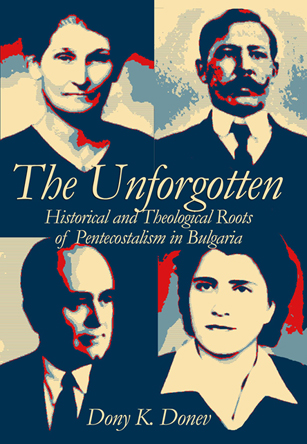 This book tells the story of four early Pentecostal families who brought the message of Azusa to Bulgaria, Eastern Europe and Russia. The research has taken over a decade to complete. It started with a brief article on the beginning of the Pentecostal movement in Bulgaria, where unfortunately many church archives were destroyed during Communism. Consecutively, the research led my wife and I on a long journey from the Southern Baptist Historical Library and Archives in Nashville, to the Assemblies of God headquarters in Springfield, the Graduate Theological Union at Berkeley, Pusey Library at Harvard, the British and Foreign Bible Society in Cambridge, and countless Bulgarian churches.We are grateful to the Flower Pentecostal Heritage Center for making readily available their denominational archives. Dr. Albert Wardin graciously opened the door for research in Nashville and Berkeley, where most documentation of Voronaev’s early ministry are preserved. Dr. Cecil M. Robeck, Jr. of Fuller provided tremendous guidance to the life and ministry of Frank and Anna Bartleman through virtually every step of their journey and every address they occupied. We are also thankful to Dr. Oleg Bornovolokov of the Ukrainian Evangelical Theological Seminary in Kiev, who helped with various KGB/FSB documents and the NKVD dossiers from Gulag.The papers included in this book were presented at Society for Pentecostal Studies meetings between 2010 and 2021. The first part of the book appeared in vol. 30 (2010) of Assemblies of God “Heritage” magazine and their December, 2010 editorial. The Bulgarian Pentecostal Union published our translation and commentary of Voronaev’s correspondence in their monthly “Evangel.” In 2011, Dr. Vladimir Franchuk, translated our Voronaev’s papers in Russian and included them in his book “Revival: from the center of Odessa to the ends of Russia” just in time for the 90th anniversary of Pentecostalism in Russia. Most of the historiographical data presented in this book is being published openly for the first time.
This book tells the story of four early Pentecostal families who brought the message of Azusa to Bulgaria, Eastern Europe and Russia. The research has taken over a decade to complete. It started with a brief article on the beginning of the Pentecostal movement in Bulgaria, where unfortunately many church archives were destroyed during Communism. Consecutively, the research led my wife and I on a long journey from the Southern Baptist Historical Library and Archives in Nashville, to the Assemblies of God headquarters in Springfield, the Graduate Theological Union at Berkeley, Pusey Library at Harvard, the British and Foreign Bible Society in Cambridge, and countless Bulgarian churches.We are grateful to the Flower Pentecostal Heritage Center for making readily available their denominational archives. Dr. Albert Wardin graciously opened the door for research in Nashville and Berkeley, where most documentation of Voronaev’s early ministry are preserved. Dr. Cecil M. Robeck, Jr. of Fuller provided tremendous guidance to the life and ministry of Frank and Anna Bartleman through virtually every step of their journey and every address they occupied. We are also thankful to Dr. Oleg Bornovolokov of the Ukrainian Evangelical Theological Seminary in Kiev, who helped with various KGB/FSB documents and the NKVD dossiers from Gulag.The papers included in this book were presented at Society for Pentecostal Studies meetings between 2010 and 2021. The first part of the book appeared in vol. 30 (2010) of Assemblies of God “Heritage” magazine and their December, 2010 editorial. The Bulgarian Pentecostal Union published our translation and commentary of Voronaev’s correspondence in their monthly “Evangel.” In 2011, Dr. Vladimir Franchuk, translated our Voronaev’s papers in Russian and included them in his book “Revival: from the center of Odessa to the ends of Russia” just in time for the 90th anniversary of Pentecostalism in Russia. Most of the historiographical data presented in this book is being published openly for the first time.
SEE MORE at Amazon.com by clicking this link
SPRING in BULGARIA
Bulgaria: SECOND Party Returns Cabinet Mandate within a WEEK
Bulgaria’s President Will Hand 3rd Cabinet Mandate to the BULGARIAN SOCIALIST PARTY
At a short ceremony President Rumen Radev expressed the opinion that Bulgaria needs a viable and efficient government. His words come in response to the decision of the second large parliamentary party There Is Such a People to return the mandate to form a government that they received.
“In response, I would like to state that it is in a crisis like we have today that Bulgaria needs a regular and effective government, and therefore every mandate is viewed with special hope. But I also understand your motives, because a sustainable and effective government cannot be created on the basis of unprincipled bargains and cannot be a commitment of only one party,” Radev said. According to the President, Bulgarian society has been waiting for years for parliament to make concrete decisions and make the electoral process more transparent.
“Sustainability in social and economic policy in times of crisis is also no less significant. In this regard, some decisions of the Bulgarian Parliament are particularly important.
They must be taken independently of the procedure for designating the executive power. We must seek balance between the procedure for forming a government, the legislative activities of the National Assembly and the important challenges our country is faced with. Along with all the proposals that are received and considered in the Bulgarian National Assembly, the most important thing is missing – the outgoing government has not submitted a proposal for an update of the budget and deprives Bulgarian pensioners, citizens and businesses of support in case the NA is dissolved and a caretaker government is appointed”, Radev said.
Bulgaria Added to Russia’s List of “Unfriendly States”
US Supports Bulgaria
Bulgaria’s President Will Hand 3rd Cabinet Mandate to the BULGARIAN SOCIALIST PARTY
President Rumen Radev will service the third exploratory mandate for the formation of a government to the prime minister designated by the third largest parliamentary group in the 45th National Assembly – BSP for Bulgaria. This will happen on May 5, 2021, at 11:00 a.m., at the President’s Office. BSP for Bulgaria floor leader and socialist leader Kornelia Ninova told a news briefing in Parliament that a decision about what to do with the mandate will be made by the BSP‘s collective bodies.
“I will call an extraordinary meeting of the BSP‘s Executive Bureau which will set the date and time for convening the party’s National Council which will discuss the situation and will make a decision about what to do with the third mandate,” said Ninova. Asked about which parliamentary groups BSP will negotiate with about a possible cabinet, she said that this will be decided by the BSP‘s National Council. “Of course, negotiations with GERB are out of the question,” she said.
President Rumen Radev further has started to constitute the caretaker government, which has emerged as inevitable. Surely the prime minister in it will be Gen. Stefan Yanev. Harvard alumni Assen Vassilev is the second well known person in the future government, Maritsa daily reports.
Vassilev was already minister of economy, energy and tourism in the caretaker government of Marin Raykov in 2013.He was also part of the team that prepared the proposals of President Rumen Radev for projects to be financed under Bulgaria’s Recovery and Sustainability Plan.
Government Elections in Bulgaria (2005-2021):
2005 Parliamentary Elections
2006 Presidential Elections
2007 Municipal Elections
2009 Parliamentary Elections
2009 European Parliament elections
2011 Presidential Elections
2011 Local Elections
2013 Early parliamentary elections
2014 Early Parliamentary Elections
2015 Municipal Elections
2016 Presidential election
2017 Parliamentary elections
2019 European Parliament election (23-26 May)
2019 Bulgarian local elections
2019 Municipal Elections
2021 Parliamentary elections
AS WE HAVE PREVIOUSLY PROPOSED, THIS PUTS BULGARIA BACK ON THE “RED LIGHT OF 30 YEARS OF COMMUNISM…” AS IN 2013, 2014, 2015, 2016, 2017, 2018, 2019 AND 2020…
Bulgaria Hosts Multinational Military Exercises in 2021
Sofia, April 25 – Bulgaria will host and share in a series of multinational military exercises in 2021 so as to enhance its armed forces’ operational capabilities, the Bulgarian Defence Ministry said in a press release on Monday.
Between March and mid-June, over 30,000 troops of 26 NATO Member States will hone interoperability in simultaneous defense operations at 30 training areas in 14 countries during a series of interconnected exercises codenamed DEFENDER-Europe 21, which will be led by the U.S. Army Europe and Africa.
DEFENDER-Europe 21 is associated with a key training event: NATO’s Steadfast Defender 21 (mid-May through early-June), led by the Supreme Headquarters Allied Powers Europe (SHAPE), in which Bulgaria will mainly contribute logistical support as a host country for forces transit.
DEFENDER-Europe 21 will encompass several linked exercises, including Swift Response, Saber Guardian, Immediate Response, and Defender Europe.
From mid-May to mid-June, Bulgaria, alongside Germany, Romania, Hungary, the Republic of North Macedonia and Albania, will host Exercise Saber Guardian, in which more than 13,000 service members from 16 countries will conduct live fire and air and missile defense operations, plus a large scale medical evacuation. In Bulgaria, Saber Guardian will encompass three national exercises with international participation: Strike Back
21, Balkan Sentinel 21 and Shabla 21, and a special operations exercise called Trojan Footprint – South. Bulgarian military elements will participate in Exercise Decisive Strike in the Republic of North Macedonia, which, too, is part of Saber Guardian.
Swift Response (early to mid-May) will include airborne operations in Estonia, Bulgaria and Romania involving more than 7,000 troops from 11 countries.
In Exercise Immediate Response (mid-May through early-June), more than 5,000 troops from 11 countries will spread out across 31 training areas in 13 different countries to conduct live fire training.
In June, approximately 1,500 personnel will stage Defender Europe, a command post exercise seeking to drill the
headquarters’ ability to command multinational land forces in a joint and combined training environment while maintaining real-world operations across 104 countries, including Bulgaria, on two continents.
CA Bill 2943 is NO JOKE
- A religious ministry could not hold a conference on maintaining sexual purity if the conference encourages attendees to avoid homosexual behavior.
- A bookstore (even online bookstores) could not sell many recently published books challenging gender identity ideology and advocating that these beliefs should be rejected by society.
- A pastor paid to speak at an event addressing current social topics could not encourage attendees that they can prevail over same-sex desires or feelings that they were born the wrong sex.
LEGISLATIVE COUNSEL’S DIGEST
Vote: majority Appropriation: no Fiscal Committee: no Local Program: no
The California Senate has approved AB 2943, a bill that could protect LGBTQ people statewide from undergoing gay conversion therapy.
Sponsored by out California Assemblyman Evan Low, AB 2943 was first passed by the state’s Assembly back in April. The bill is unique in both its approach to preventing conversion therapy and its scope: If passed, the law would outlaw conversion therapy as a consumer protection, establishing that practitioners who claim to be able to “cure” a patient’s sexual orientation or gender identity are conducting fraudulent business practices under California’s Consumer Legal Remedies Act. (Lawyers in New Jersey used a similar strategy to shut down a Jewish conversion therapy clinic in 2015.) The proposed law would also protect children and adults—a significant step considering most conversion therapy protections currently in place in the U.S. only pertain to minors.
New EU Vaccination Certificates Create Risk
Missionaries without COVID vaccine at a high risk of travel ban
Vaccination Certificates Create Risk of Two-Tier Society, Indirect Discrimination
Covid-status certificates being considered by ministers to help open up society could amount to unlawful indirect discrimination, the government’s independent equalities watchdog has advised.
As ministers decide whether the documents should be introduced as passports to certain events later this year, the Equality and Human Rights Commission has told the Cabinet Office they risk creating a “two-tier society”.
The watchdog also said employers should not be allowed to hire workers on a “no jab, no job” policy until all young people had been offered a vaccine, and that plans to make them mandatory for care workers helping older people may not be lawful
According to a submission seen by the Guardian, the EHRC said Covid-status certificates could be a “proportionate” way of easing restrictions, given the toll lockdown has taken on people’s wellbeing and livelihoods.
But it said they risked further excluding groups among whom vaccine take-up is lower – including migrants, those from minority ethnic backgrounds and poorer socio-economic groups – from access to essential services and employment.
“There is a risk of unlawful discrimination if decisions taken in this process disadvantage people with protected characteristics who have not received, or are not able to receive, the vaccine, unless they can be shown to be justified,” it said. “Any mandatory requirement for vaccination or the implementation of Covid-status certification may amount to indirect discrimination, unless the requirement can be objectively justified.”
The warnings emerged as the health secretary, Matt Hancock, gave the clearest indication yet that care workers would be required to have a vaccination or be refused deployment in care homes.
Launching a five-week consultation on the proposal, the government said the initiative could later be extended to the wider health and social care workforce. “Due to the importance of this issue, we intend to change the law quickly,” it added.
Despite care workers being in the highest priority category for jabs, Hancock said only around half of care homes in England had enough people vaccinated. Government scientific advisers believe 80% of staff and 90% of residents need to be vaccinated to provide a minimum level of protection against outbreaks of the virus.
Senior government figures had for months denied that any form of “vaccine passport” for domestic or international use would be introduced as the rollout of jabs got under way in the winter. But at the end of February, Boris Johnson announced a review would be launched into the idea to explore the complex ethical issues behind it. He touted the documents – that would be used to prove someone’s vaccine, test or antibody status – as a possible requirement to enter a pub or a theatre.
Since then, an interim report from the Cabinet Office review has ruled out the documents ever being necessary on public transport or in essential shops – though the government has declined to provide any definition of these. It has expanded access to testing in England this week, by offering everyone two lateral flow tests a week – a measure it would argue means the certificates would not just be available to those who have been vaccinated.
Johnson faces the prospect of a significant Tory rebellion if he pushes ahead with introducing the certificates and calls for a vote in parliament, with 41 Conservative backbenchers vowing to oppose them. Labour has previously vowed to vote against “vaccine passports” but has been less clear about its stance on a wider certificate scheme used to show someone’s vaccine, test or antibody status. It says it is still waiting for the government to formally present a firm proposal.
Marsha de Cordova, the shadow women and equalities secretary, said: “We share the EHRC’s concerns and hope the government will take note.”
Responding to the government’s call for evidence on Covid-status certificates, the EHRC said that if they were introduced, it should only be for a limited time and subject to regular review, along with “strict parliamentary scrutiny”.
Care home operators are divided over mandatory jabs. Barchester, one of the largest private operators, has already said it will make vaccines a condition of work, starting as soon as 23 April. Its chief executive, Pete Calveley, said: “It is a professional duty for care home staff to accept the vaccine unless there is a medical reason they should not.”
Other operators fear it will drive away staff in an already depleted workforce and that it is unreasonable to only make vaccines compulsory for care workers and not NHS staff.
The government has previously acknowledged the legal difficulty of mandatory vaccines. In February, the prime minister’s official spokesperson said: “Taking a vaccine is not mandatory and it would be discriminatory to force somebody to take one.” Robert Buckland, the justice secretary, has also said he believes making vaccines mandatory for existing staff is likely to require testing in the courts.
Employment lawyers said on Tuesday that the rule could breach the Human Rights Act and amount to indirect discrimination, if refusal was related to religious belief for example, and it was likely to be tested in the upper courts.
“There would have to be a very strong justification that mandating vaccines really does put a dent in the Covid case numbers,” said Ryan Bradshaw, an employment and discrimination lawyer at Leigh Day.
The government wants to make vaccination of carers part of the “fundamental standard” of providing safe care, enshrined in the Social Care Act. Care homes which fail to show their staff are vaccinated could, in the most serious cases, have their registration to operate cancelled.
Unison, a trade union representing health workers, described the plan as “the wrong approach” and called for persuasion – rather than coercion – of care workers, many of whom have cited fears, albeit so far unfounded, that the vaccine could affect pregnancies. Others have cited religious concerns, while practical issues of not being on shift when GPs arrived to deliver doses have also been highlighted.
With the vaccine programme in England now being extended to those in their late 40s and the government not promising to offer all those over the age of 18 a jab until the end of July, the EHRC said employers should not be able to discriminate when looking to hire only those who had been vaccinated. It advised: “The implementation of any policy would need to reflect the status of the vaccine rollout programme and ensure that it does not discriminate against younger people, who are unlikely to be vaccinated until later in the process.”
A government spokesperson said: “Covid-status certification could have an important role to play both domestically and internationally, as a temporary measure. We are fully considering equality and ethical concerns as part of our ongoing review.”
Pentagon: US Should Deploy More Troops in Bulgaria as Tensions Rise between Ukraine and Russia
Former Secretary of Defense Mark Esper says the United States should deploy more troops along the Black Sea in Bulgaria and Romania to deter potential aggression from Russia as tensions between Moscow and Washington heat up.
Esper, now a fellow at the McCain Institute for International Leadership at Arizona State University, said “I think we need to continue to stand up to Russia and trying to deter their bad behavior.”
Washington should look to reassure European allies and boost the NATO alliance by deploying more forces in Poland, “into the Baltics, if it makes sense, and places like Romania and Bulgaria, if not on a permanent – on a rotational basis,” Esper said in an interview with Reuters on Tuesday.
President Joe Biden called on Russian President Vladimir Putin on Tuesday to reduce tensions stirred by a Russian military build-up on Ukraine’s border and proposed a summit of the estranged leaders to tackle a raft of disputes.
Russia seized Crimea from Ukraine in 2014 and fighting has increased in recent weeks in eastern Ukraine, where government forces have battled Russian-backed separatists in a seven-year conflict that Kyiv says has killed 14,000 people.
When he was running the Pentagon last year, Esper advocated a similar shift as former President Donald Trump announced his intention to cut the U.S. troop contingent in Germany by about a third, saying Berlin had been taking advantage of the United States while not meeting financial obligations to NATO.
The United States announced on Tuesday that it will ramp up its forces in Germany amid the latest tensions with Russia over Ukraine, abandoning Trump’s plan to withdraw around 12,000 of the 36,000 U.S. troops there.











